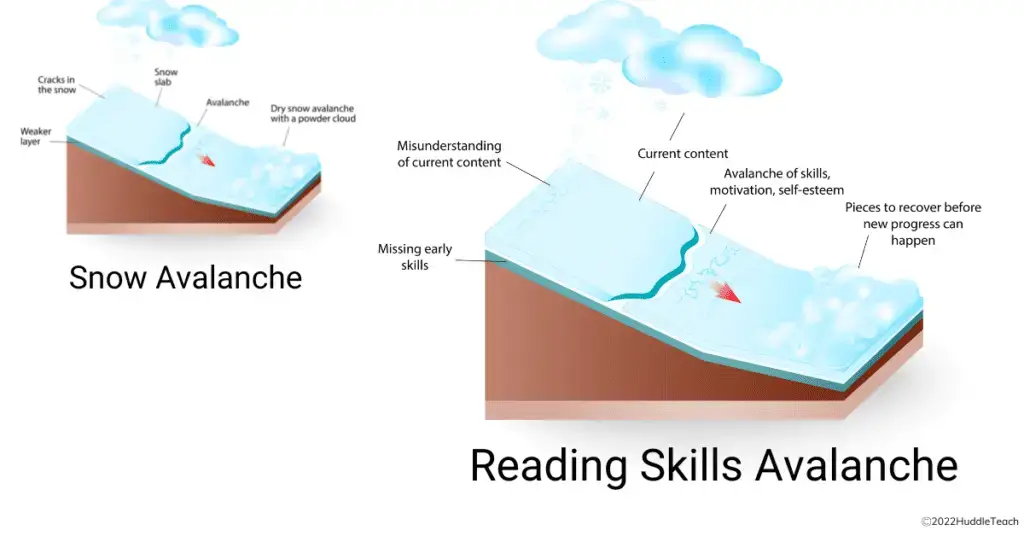Protect students from the middle school crash
Perhaps it is the triple degree heat (or the Stanley Cup finals!) that makes me think of snow – and avalanches – rather than any summery metaphor. No matter – here we are, talking about how the lack of foundational skills often leads to the avalanche that is the crash and burn in middle school – and the need to accelerate reading skills to move students forward faster.

Many older students hide reading deficits – until they can’t
Struggling readers often realize early that they are not “getting it” as fast as many of their peers. Since reading ability has become a proxy for intelligence, the instinct to hide difficulties is strong. Embarrassment and shame take hold. Those students who, for years, have been able to “fake it,” or compensate for missing skills, have a more difficult time doing so when content area expectations begin to pile up in secondary grades. Teachers in these grades often present information as a lecture instead of using multisensory techniques. The sheer amount of information also becomes overwhelming, and the middle schooler begins to BIG fail.
Weak underlying skills cause the slide
Why are we seeing more middle schoolers than ever needing reading support? My striving readers classes totaled 87 this past year. Only 20% of those students had ever attended any type of elementary reading support program. Most of my students had been able to develop coping skills to get through the elementary years. But as words got longer, more technical, and more specialized, the lack of word knowledge showed quickly.
There are many reasons for these weak skills – skills that are usually mastered at least two years before middle school. From the focus away from phonics in early literacy to the impact of the pandemic (this report is interesting), our students are coming to us with even greater gaps in their word solving abilities.
Is it too late to fix missing skills?
While some reading skills are time-sensitive (such as phonological awareness), older students can still (and easily) be taught word solving skills that will accelerate reading progress.
What works?
First, use a screener that helps you know which areas students are struggling. Complete an informal decoding inventory (such as this free one) to help you know where to focus.
Next, use materials that are geared for older students. Be mindful of the message communicated by babyish fonts and pictures. Use materials like these to help your older students.
Prepare students by having the “swing back” conversation detailed in this blog post. This helps students understand WHY we address these skills.
Take advantage of the Throwback Thursday trend. Every week, we practice younger skills that will move us forward faster without students feeling insulted.
And finally, don’t forget to swing forward with new skills to accelerate reading progress. When you quickly apply concepts to longer, more technical words, decoding and vocabulary skills improve – and so do motivation and confidence!
How it helps
The best prevention for skills avalanche is a solid foundation. With great teaching, students expand their capacity to read through the years. It’s never too late to fix a weak layer, though, so shoring up those word solving skills is imperative. Start your year this way, and you’ll notice a difference throughout the year!
How do you help repair weak foundations in your older readers?


